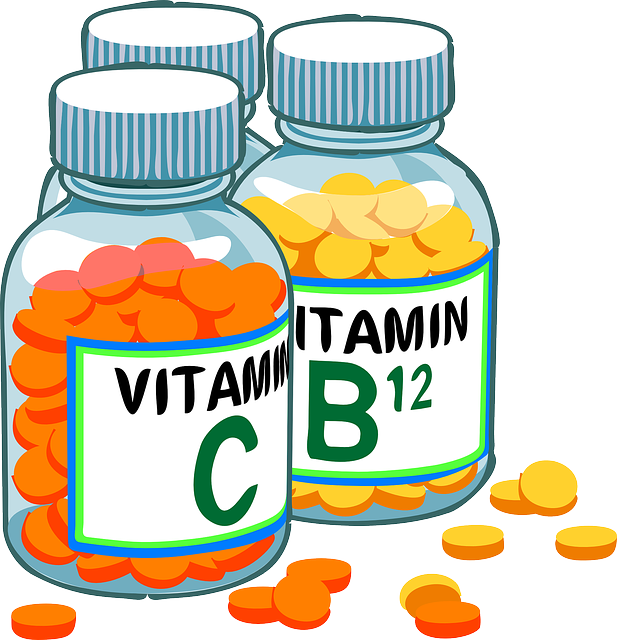Guided meditation, breathing exercises, yoga, and tailored nutrition are key components of holistic wellness programs. These practices reduce stress, anxiety, and promote relaxation by calming the mind. Incorporating them into your routine enhances mental clarity, emotional balance, sleep quality, resilience, and overall well-being, making them essential in mental health workshops and stress management programs. Comprehensive wellness approaches cater to diverse preferences, addressing the interconnectedness of mental, emotional, and physical health for lasting relaxation and improved quality of life.
Looking for a way to unwind and find inner peace? Guided meditation and breathing exercises offer powerful tools for achieving relaxation and enhancing overall wellness. This comprehensive guide explores the benefits of guided meditation, from reducing stress to improving mental clarity. We delve into effective breathing techniques, introduce yoga as a holistic approach, and discuss how nutrition plays a vital role in your wellness journey. Additionally, we provide insights into designing stress management programs tailored for mental health workshops, empowering you to navigate life’s challenges with resilience.
- Understanding Guided Meditation and Its Benefits for Relaxation
- Integrating Breathing Exercises into Your Wellness Routine
- Creating a Holistic Approach with Yoga and Nutrition
- Designing Effective Stress Management Programs for Mental Health Workshops
Understanding Guided Meditation and Its Benefits for Relaxation

Guided meditation is a practice that involves using audio cues or visual aids to lead an individual through a calming mental journey. It’s more than just sitting quietly; it’s an active process designed to focus your attention, quiet your mind, and foster relaxation. Through specific techniques, guided meditation helps to reduce stress, anxiety, and improve overall well-being. This type of meditation is particularly beneficial for beginners or those looking for structured support in their wellness programs for mind and body.
Incorporating mindfulness and meditation into your routine, often alongside yoga for wellness and fitness exercise plans, can significantly contribute to a holistic wellness program. Mental health workshops and stress management programs that include guided meditation can help individuals develop strong tools for navigating life’s challenges. Additionally, nutrition and diet counseling can be enhanced by these practices, promoting not just physical but also mental and emotional balance.
Integrating Breathing Exercises into Your Wellness Routine

Incorporating breathing exercises into your wellness routine is a powerful step towards achieving holistic well-being. These simple yet effective techniques are a cornerstone of many mindfulness and meditation practices, serving as a foundation for improving mental health and managing stress. Whether you’re new to wellness programs or an experienced practitioner, integrating conscious breathing can enhance your existing fitness and exercise plans, yoga routines, or even nutrition and diet counseling sessions. By dedicating just a few minutes each day to focus on your breath, you can unlock profound benefits that extend far beyond relaxation.
Breathing exercises are versatile tools that complement various holistic wellness programs for mind and body. They can be tailored to cater to different preferences and needs, making them accessible to everyone. For instance, deep belly breathing or diaphragmatic breathing promotes relaxation and better oxygen circulation, while rhythmic breathing techniques enhance mental clarity and focus. Incorporating these practices into your daily routine can help reduce anxiety, improve sleep quality, and boost overall resilience in the face of life’s challenges. Mental health workshops often emphasize the power of mindfulness, which is cultivated through regular breathing exercises, allowing individuals to navigate stress with greater grace and equanimity.
Creating a Holistic Approach with Yoga and Nutrition

Incorporating holistic practices like yoga and nutrition into your wellness routine can significantly enhance relaxation and overall well-being. Yoga, with its focus on breath control, postures, and mindfulness, is a powerful tool for managing stress. It not only strengthens the body but also cultivates mental clarity and emotional balance, making it an integral part of any holistic wellness program. By combining yoga with tailored fitness and exercise plans, you create a well-rounded approach to relaxation and stress relief.
Nutrition plays a vital role in mental health workshops and stress management programs. The food we consume can impact our mood, energy levels, and ability to cope with daily stressors. Nutritional counseling can help individuals identify dietary patterns that promote relaxation and optimize their mental state. When combined with mindfulness and meditation practices, these holistic wellness programs offer a comprehensive strategy for achieving lasting relaxation and improving overall quality of life.
Designing Effective Stress Management Programs for Mental Health Workshops

Effective stress management programs are essential components of mental health workshops, designed to holistically support participants’ wellness. These programs often integrate a range of techniques including mindfulness and meditation, yoga for wellness, fitness and exercise plans, as well as nutrition and diet counseling. The goal is to provide attendees with a comprehensive toolkit to manage stress in their daily lives. By combining these diverse approaches, workshops can cater to different preferences and needs, ensuring a more inclusive and impactful experience.
Wellness programs for mind and body should be carefully curated to balance relaxation techniques like guided meditation and breathing exercises with active physical activities and dietary guidance. This multi-faceted approach recognizes the interconnectedness of mental, emotional, and physical health. For instance, yoga not only improves flexibility and strength but also promotes mindfulness, while nutrition counseling equips individuals with the knowledge to fuel their bodies in ways that support mental resilience. Such holistic wellness programs are game changers in fostering a sense of calm and overall well-being.
Guided meditation, breathing exercises, yoga, and nutrition counseling are powerful tools within holistic wellness programs, particularly effective in mental health workshops. By integrating these practices into your routine, you can design comprehensive stress management programs that cater to both the mind and body. Mindfulness and meditation, coupled with tailored fitness and exercise plans alongside nutrition and diet counseling, offer a holistic approach to enhancing overall well-being. These strategies empower individuals to navigate life’s challenges with resilience and cultivate a deeper sense of calm and balance.
